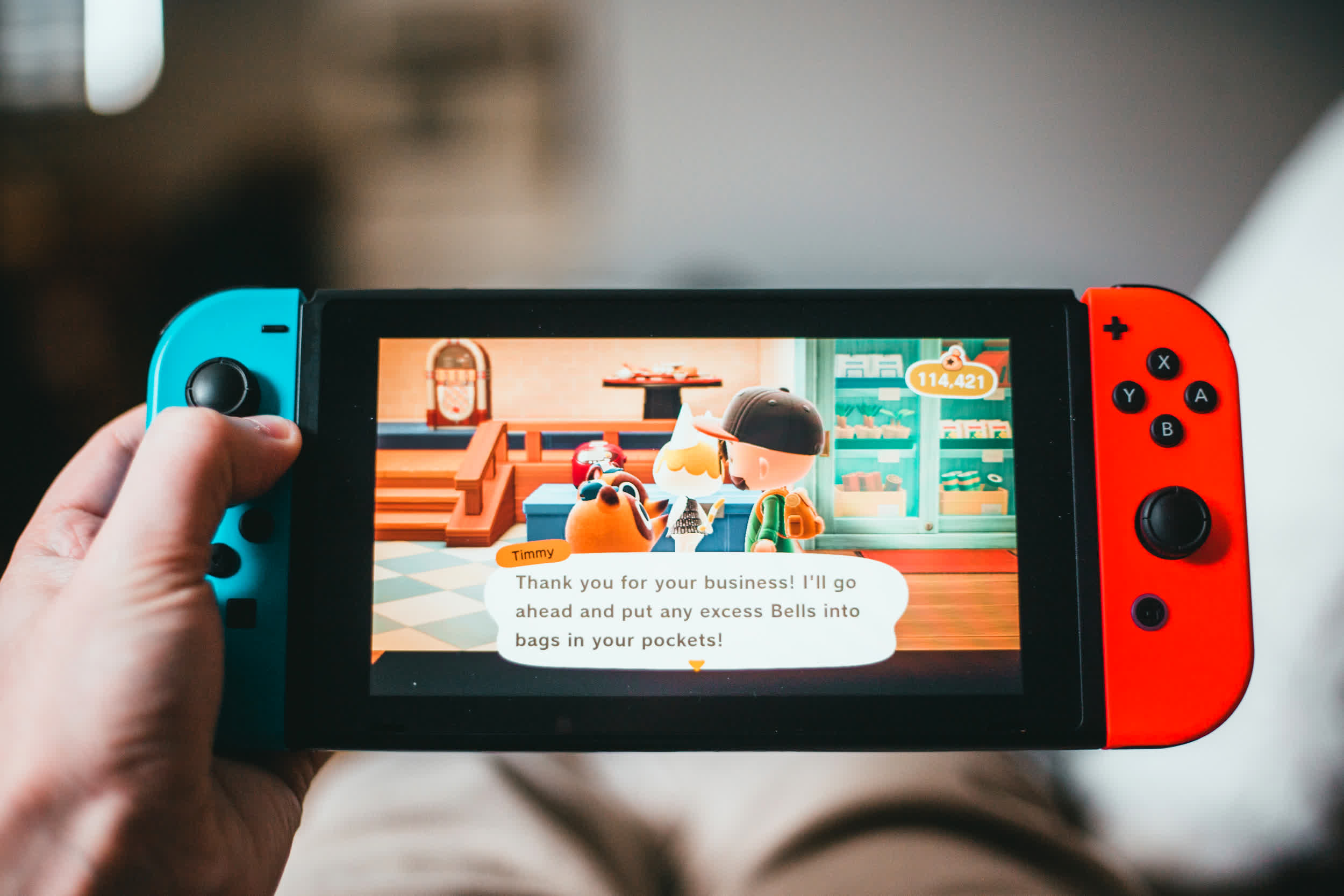PSA: Nintendo Switch owners typically worry about issues like the system's infamous Joy-Con stick drift or perhaps protecting the screen from damage. Concern over condensation has been rare. However, it appears to be a real enough problem for Nintendo support to warn users.
Nintendo's Japanese support channel tweeted this week that Switch owners should watch out for condensation and completely power off the console - not put it into sleep mode - should the problem occur. It's unclear why Nintendo only recently issued the warning as the Switch approaches its sixth birthday.
The company says to watch for water droplets, as rapid temperature changes in the surrounding environment could damage the console. The tweet includes art depicting water droplets on a Switch's screen, but Nintendo doesn't specify whether it's worried about moisture on top of the screen getting inside the system, or the air inside the Switch condensing into water droplets.
If users do see droplets, the company says they should bring the Switch into a warm room until it dries, suggesting Nintendo is currently concerned about users carrying units from heated buildings into outdoor winter weather. Internal condensation may be unlikely because such hardware is designed to have clear airflow from the inside out, and using it naturally generates heat.
ゲーム機'置いている'所の温度が急激に変わると、ゲーム機に結露が起"る"とがあります。
--- 任天堂サポート (@nintendo_cs) January 23, 2023
結露が起きた'合は、電源'OFFに-て、''が乾くまで-かい部屋に置いてくだ*い。
電源OFFの-*については、"ちらのQ&A'"覧くだ*い。 https://t.co/R3XKSzvXgP pic.twitter.com/k3ZmEsbsx9
The tweet also contains a link leading to directions for completely shutting down the Switch. Most users probably already know to press the power button for three seconds, then select Power Options > Turn Off. You can also force the system to shut down by holding the power button for 12 seconds.
Meanwhile, a small company from China started providing Switch owners with a solution to the system's most notorious problem - Joy-Con stick drift. Users can buy new analog sticks from GuliKit that use Hall effect sensors, which aren't susceptible to drift.
In other Switch news, sources have told Bloomberg that Nintendo plans to boost the system's production amid high demand despite its advanced age. The company likely expects demand to increase further when it releases the highly anticipated The Legend of Zelda: Tears of the Kingdom on May 12.
If production does increase, it will likely quiet speculation that Nintendo could soon introduce a successor to the Switch, at least for now. The company launched the system in April 2017, and analysts predict its follow-up could arrive as soon as 2024.
